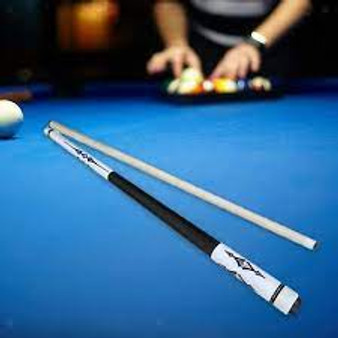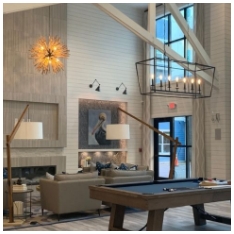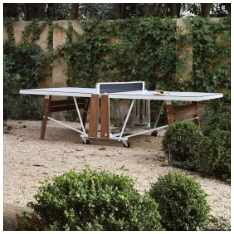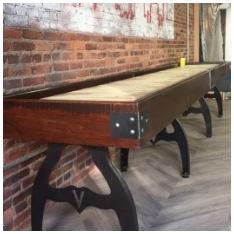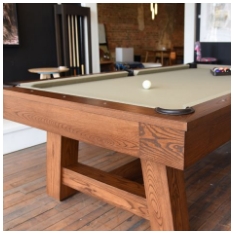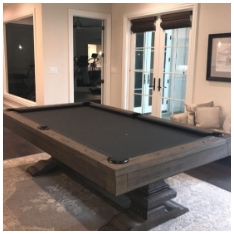Cues are the most essential tools in cue sports such as pool, snooker, and billiards. While all three games involve striking balls on a table using a stick, the design and construction of the cue you choose can have a significant impact on performance. Every type of cue is made to meet the demands of its game, offering variations in size, weight, tip, and balance.
The different types of cues for pool, snooker, or billiards, highlighting what sets them apart, how they are made, and what players should consider when choosing one.
Why Cue Selection Matters
Choosing the right cue is more than just picking up any stick available at the table. A well-matched cue improves accuracy, control, and comfort. Since pool, snooker, and billiards differ in table sizes, ball sizes, and playing styles, their cues are also designed with unique features.
By understanding the different types of cues, you can enhance your gameplay whether you’re a casual player or aiming for professional-level performance.
Different Types of Cues for Pool, Snooker, or Billiards
Pool Cues
Pool is played with larger balls compared to snooker and billiards. Therefore, pool cues are designed to handle this difference:
- Length: Usually 57–59 inches
- Weight: Between 18–21 ounces
- Tip Size: Larger tips, typically 12–13 mm in diameter, to provide more surface contact with the ball
- Design: Often come with two pieces for easy transport; made from maple wood for strength and durability
Pool cues also feature a protective ferrule between the tip and the shaft, which reduces impact stress. Many pool players customize cues with grip wraps, joint types, and decorative inlays.
Snooker Cues
Snooker requires more precision since the balls are smaller than pool balls, and the table is much larger. Snooker cues have characteristics tailored for finesse:
- Length: Around 57–58 inches, slightly slimmer than pool cues
- Weight: Typically 17–19 ounces
- Tip Size: Smaller tips, about 9–10 mm in diameter, to allow for precise spin and control
- Design: Traditionally made from ash wood with a smooth finish for consistent cueing action
Snooker cues often feature a brass joint for sturdiness and may come with an extension piece for long-reach shots. The narrower shaft allows players to strike the ball with accuracy, especially for delicate positional play.
Billiard Cues
Billiards, often referring to carom billiards, is played without pockets on the table. This requires specialized cues:
- Length: About 54–56 inches, shorter than most pool and snooker cues
- Weight: 16–18 ounces, relatively light for better control
- Tip Size: Around 11–12 mm in diameter, balancing between precision and ball impact
- Design: Usually thicker at the butt and tapering more gradually for power in stroke delivery
Since billiards emphasizes rebounds, spin, and calculated positioning, the cue’s design supports smooth control over angles and speed.

Materials Used in Cue Construction
The performance of any cue is influenced by the material it’s made from. Different types of cues for pool, snooker, or billiards may use the following materials:
- Maple Wood: Common for pool cues, providing durability and a smooth finish
- Ash Wood: Preferred for snooker cues due to visible grain lines that assist in aiming
- Fiberglass/Carbon Fiber: Used in modern cues for consistency, resistance to warping, and low maintenance
- Exotic Woods: Such as ebony or rosewood, often added for aesthetic appeal and balance
Some cues also integrate composite materials to combine durability with traditional playability.
One-Piece vs. Two-Piece Cues
Another distinction in the different types of cues for pool, snooker, or billiards is whether they are one-piece or two-piece.
- One-Piece Cues: Found mostly in clubs and pool halls, offering a consistent shaft with no joint. They are reliable but less portable.
- Two-Piece Cues: Popular among serious players, as they can be carried in cases. They often feature high-quality joints that preserve the cue’s balance and feel.
Some cues also come in three-piece designs, especially in snooker, where extensions are attached for long shots.
Cue Tips and Their Role
Cue tips are small but crucial components that influence how the ball responds to a strike.
- Soft Tips: Provide more grip on the ball, allowing for higher spin, but wear out faster
- Medium Tips: A balance between spin control and durability, suitable for most players
- Hard Tips: Last longer and deliver powerful shots, but with less spin control
The tip size differs significantly across the different types of cues for pool, snooker, or billiards, emphasizing the specific needs of each game.
Factors to Consider When Choosing a Cue
When selecting from the different types of cues for pool, snooker, or billiards, players should keep these factors in mind:
- Game Type: Pool, snooker, or billiards each requires specific cue designs
- Player Level: Beginners may prefer cues with medium tips and standard weights, while advanced players often choose custom cues
- Cue Balance: The distribution of weight affects stroke comfort and accuracy
- Grip Style: Wraps, leather, or smooth finishes influence handling
- Budget: While entry-level cues are affordable, professional cues can be significant investments
Caring for Your Cue
No matter the type, proper care ensures a cue lasts longer and performs consistently. Here are some best practices:
- Wipe down the shaft regularly to remove chalk and oils
- Store cues upright or in a case to avoid warping
- Replace tips when they become worn down
- Avoid leaving cues in extreme heat or damp environments
Maintaining your cue will keep it reliable for practice sessions and competitive matches alike.
Final Thoughts
Understanding the different types of cues for pool, snooker, or billiards is key to improving your game. Each cue is designed with specific dimensions, weights, and tip sizes to match the demands of its sport. Pool cues offer strength and control for larger balls, snooker cues provide precision for long tables and smaller balls, while billiard cues are optimized for pocketless gameplay that requires accuracy and spin control.
By selecting the right cue and maintaining it properly, you can enjoy a better playing experience, whether you’re practicing casually or competing at a higher level.
